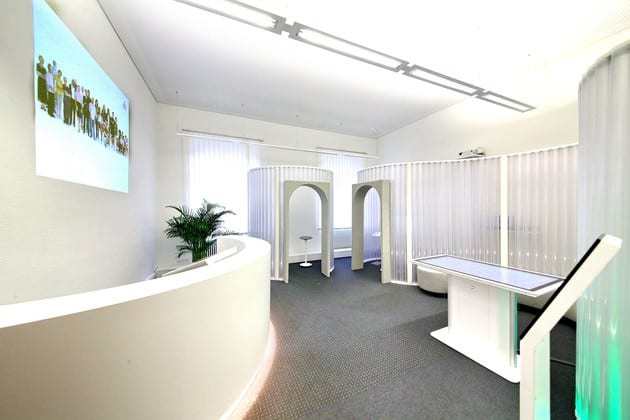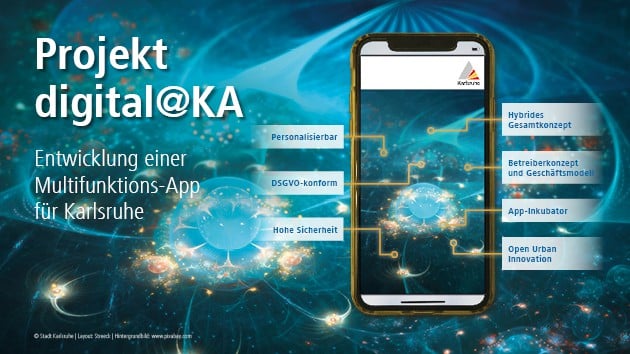The smartest administration in Germany is based in Karlsruhe

Karlsruhe has the smartest administration in Germany. This is the result of a recent Survey by the industry association Bitkom. The study compared 81 major German cities. Karlsruhe took first place in the administration category with 83.7 out of a possible 100 points.
In the overall ranking, which is calculated from the average value of the five categories administration, society, mobility, energy and environment as well as IT and communication, the fan-shaped city also has nothing to hide. Karlsruhe took fifth place behind the winner Hamburg as well as Munich, Cologne and Darmstadt.
Office for IT and Digitalization makes the leap to the top
The fact that the Karlsruhe city administration came out on top in the race for the smartest administration comes as no surprise to Mayor Albert Käuflein. “The result makes us proud. But we have also invested a lot of time and money in the digitalization of our administration,” says Käuflein. The work at the Office for Information Technology and Digitization was a key factor in the top ranking. The first office for IT and digitalization in a major German city was launched in 2017 to improve internal processes. Since then, the department has been continuously expanded by office manager Markus Losert. The office currently has around 70 employees.

The heart of the IT department beats in the DigitalLab
According to Losert, the most important tasks of the office are the conversion of the administration to electronic files and the expansion of digital citizen services. The heart of the IT department beats in the DigitalLab on the first floor of the town hall. The development lab with large screens, conference area and comfy sofas is a meeting place for inventors and a workspace for digitalization experts all in one. “You can also have longer discussions here about possible ways to increase efficiency,” says Losert. The doors of the DigitalLab are also open to external experts. For Losert, the good cooperation and functioning network with experts from research institutions such as the Karlsruhe Institute of Technology and the IT industry is an important factor for the successful digitalization of all processes. “The good connection to research and industry is essential for our daily work,” says the head of the office.

The multifunctional app for all citizens
The multifunctional app with the project title “digital@KA” is due to be launched in spring 2021. Existing and new citizen services are bundled on the app. Karlsruhe residents can then use a platform to order tickets for the zoo or search for streetcar departure times in the city center. Losert is satisfied with the response to previous stand-alone solutions such as the KA-Feedback citizen service for reporting traffic disruptions or the eTicket@KA system for purchasing digital tickets. What is still missing are chatbots for automatically answering standard questions on the municipal service number 115. “Since the start of the coronavirus pandemic, we have been receiving a lot of calls here. We still need support from an intelligent system,” says Losert.

Digitizing an administration takes a lot of time
Despite the good equipment of the IT department, modernizing the administration takes a lot of time. “We operate no rocket research. Administrations are often slower when it comes to digitalization than banks or insurance companies,” says Losert. On the one hand, this is due to the technical challenges and, on the other hand, the sometimes completely different tasks and processes in the departments of a Metropolitan administration. Large-format construction plans in the building construction office can also only be difficult to digitize completely like some documents. In addition, the IT experts do not digitize faster than the legal situation allows. Signatures and personal appearance at the handover are often required. of a document nor prescribed by state or federal law.